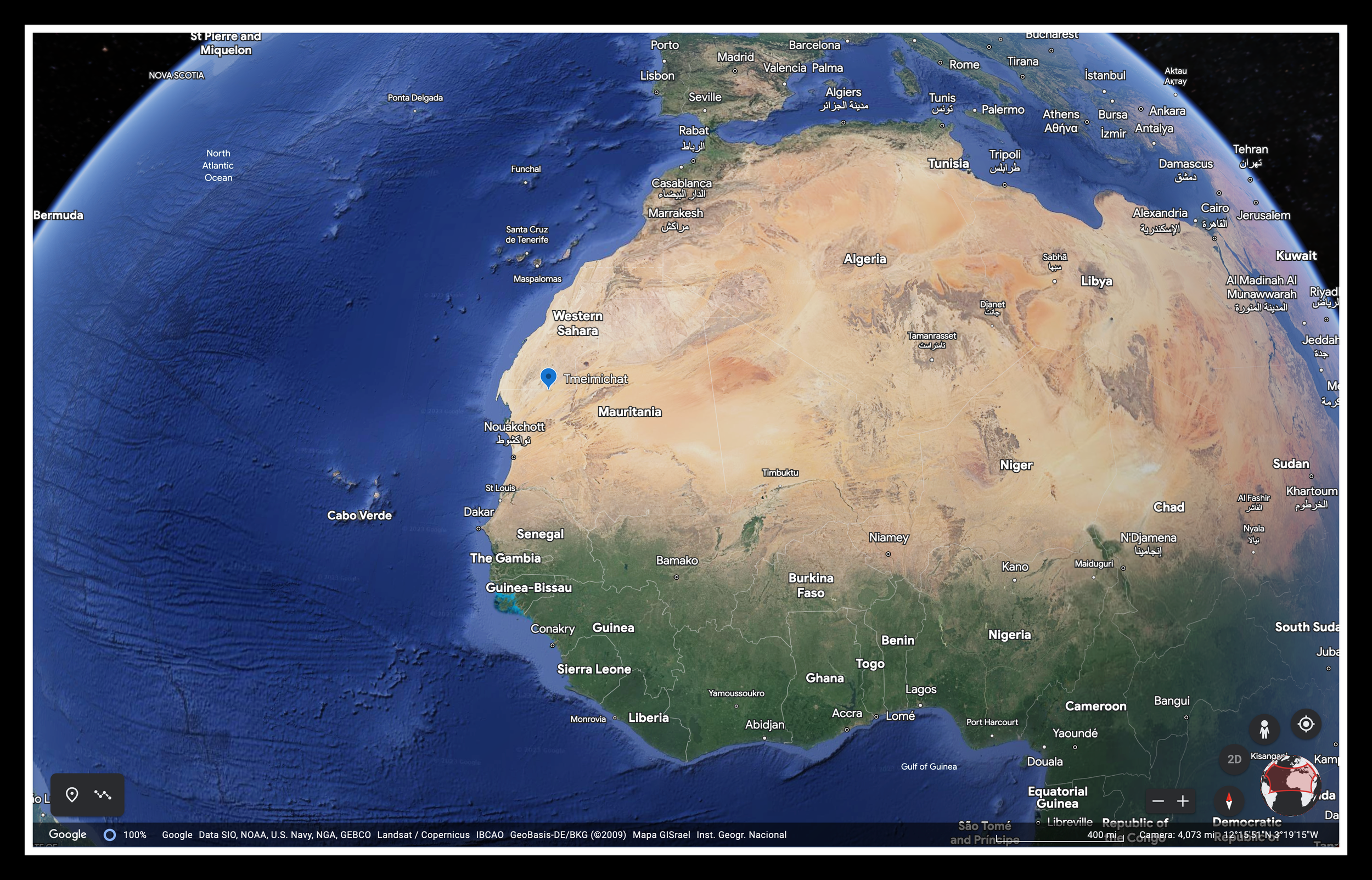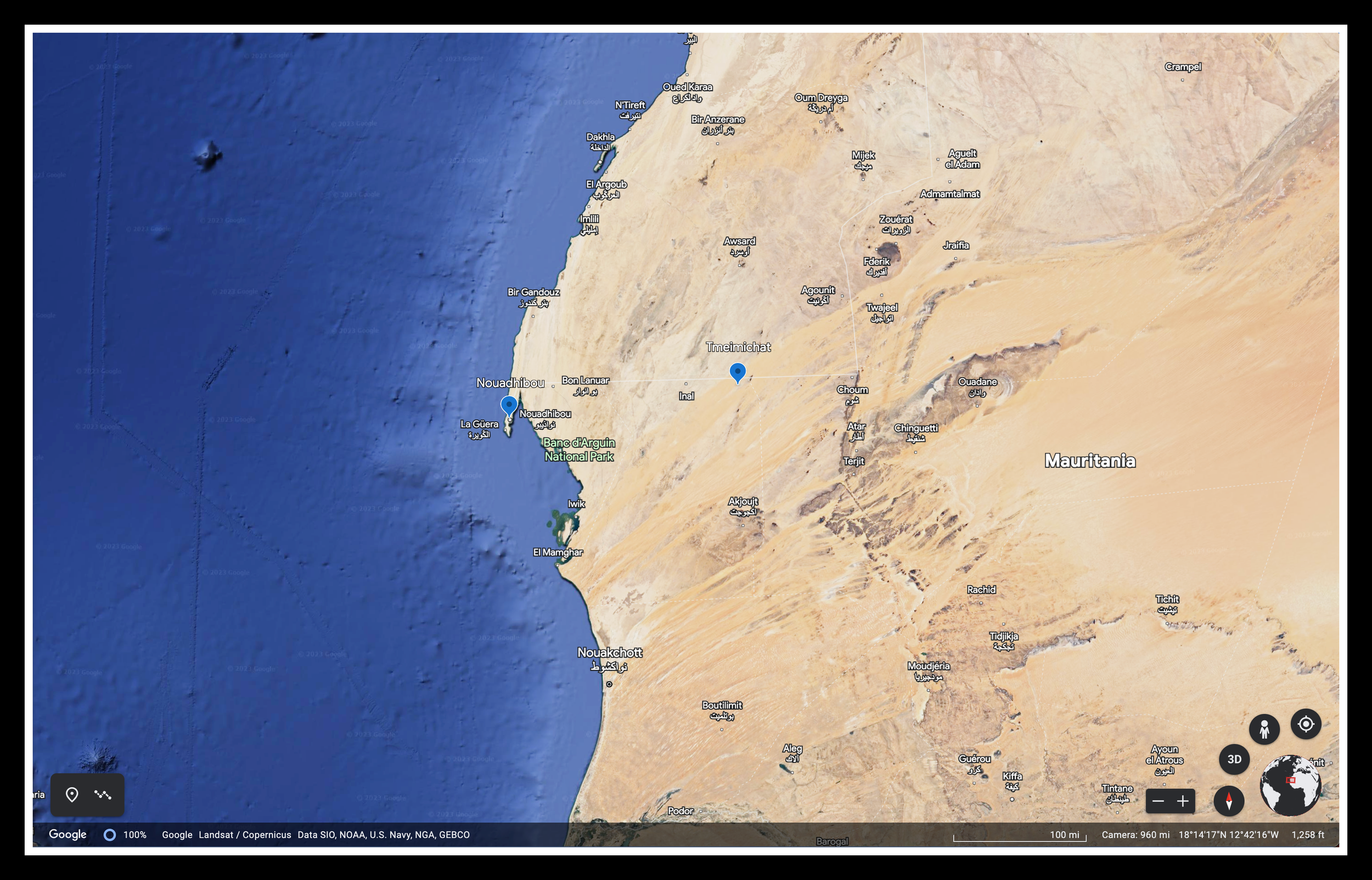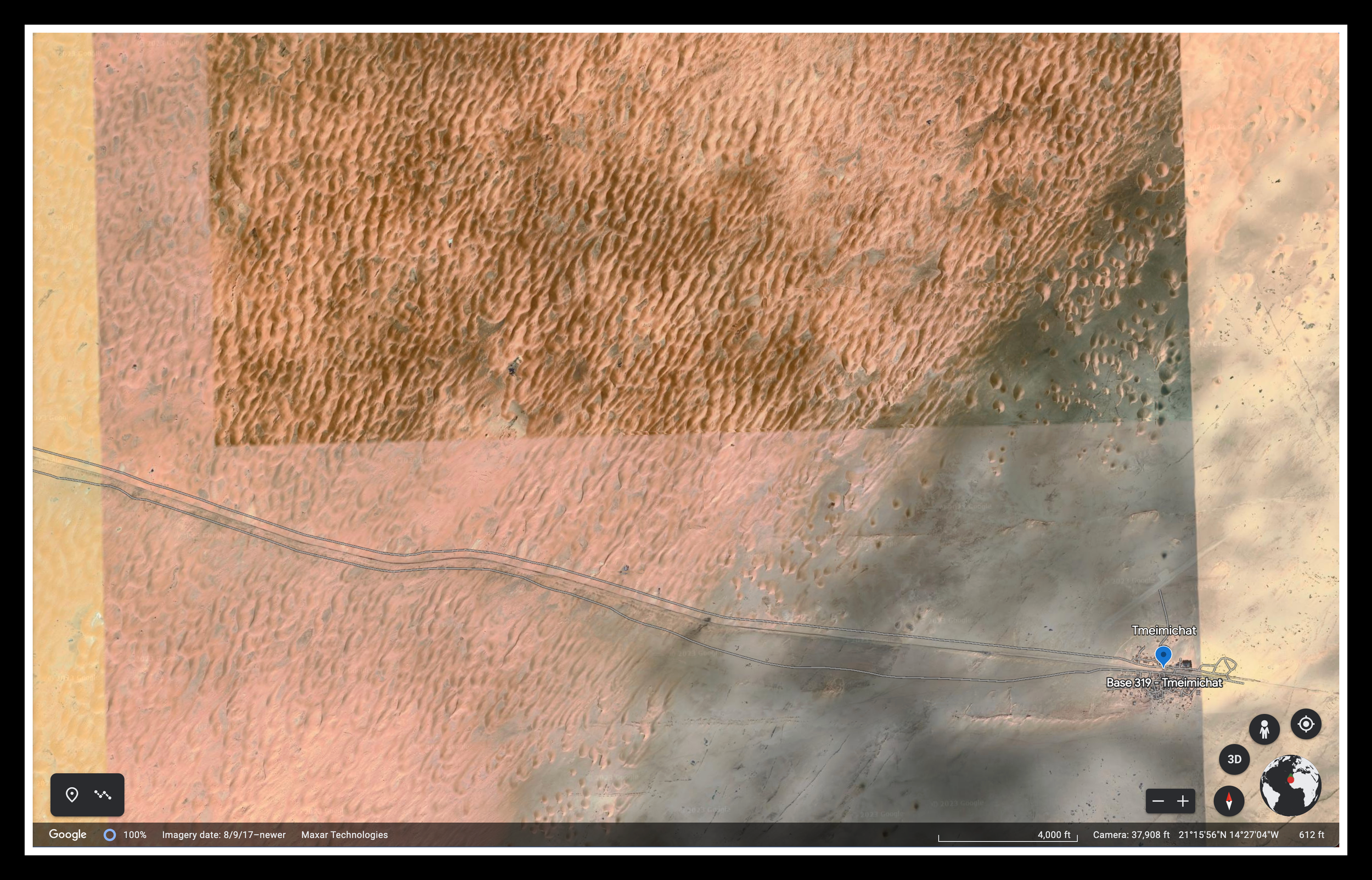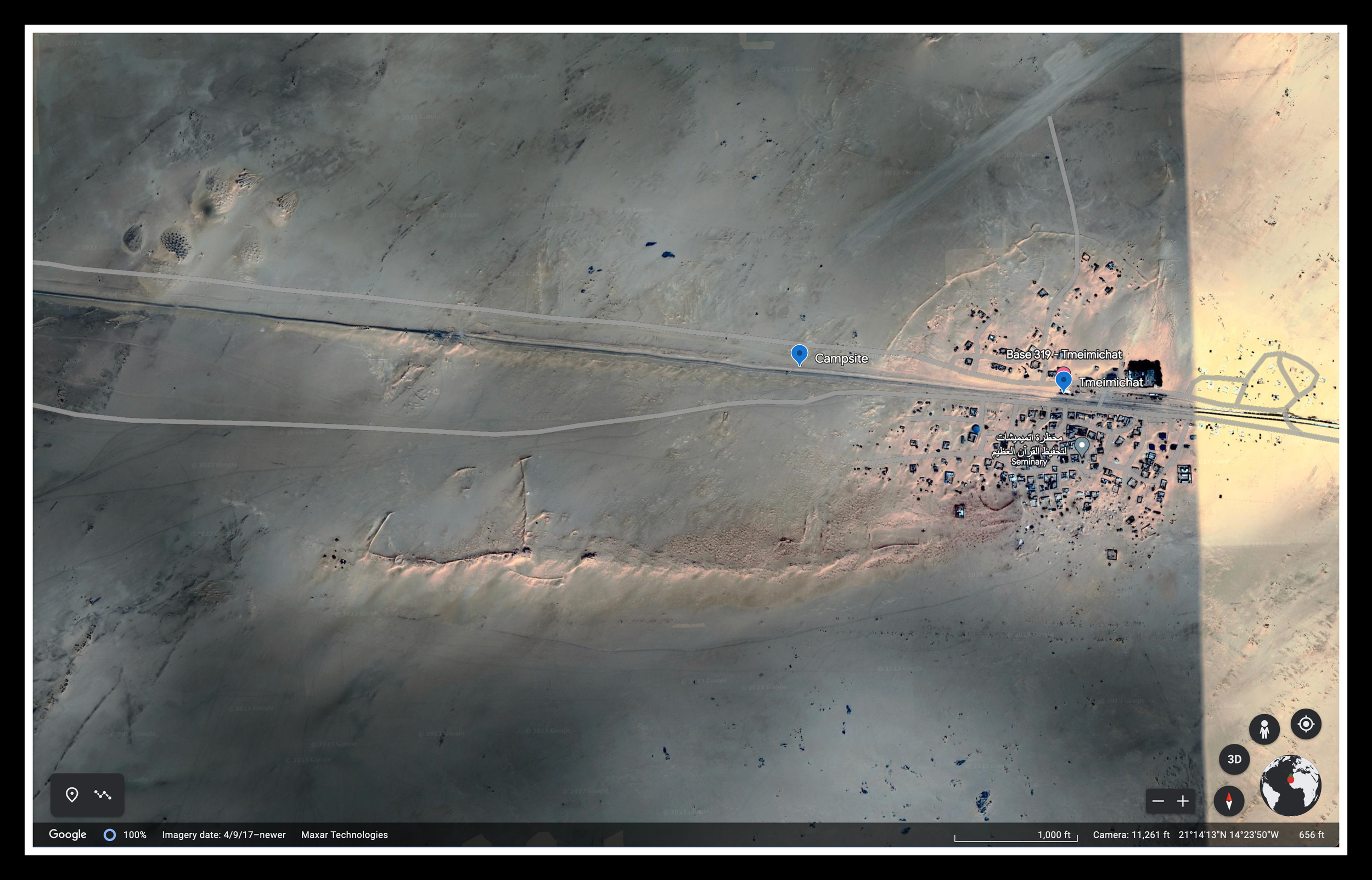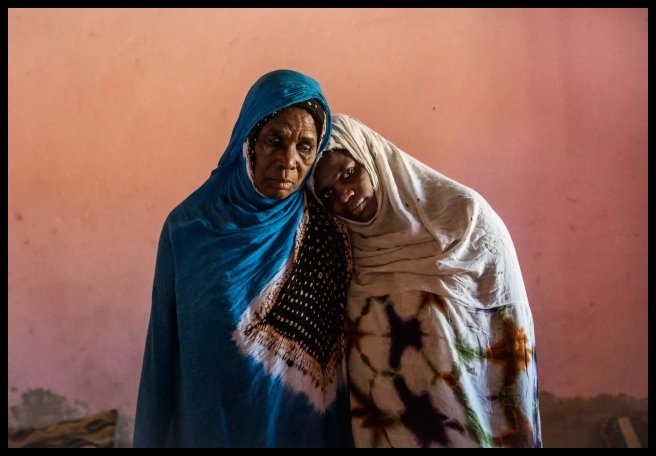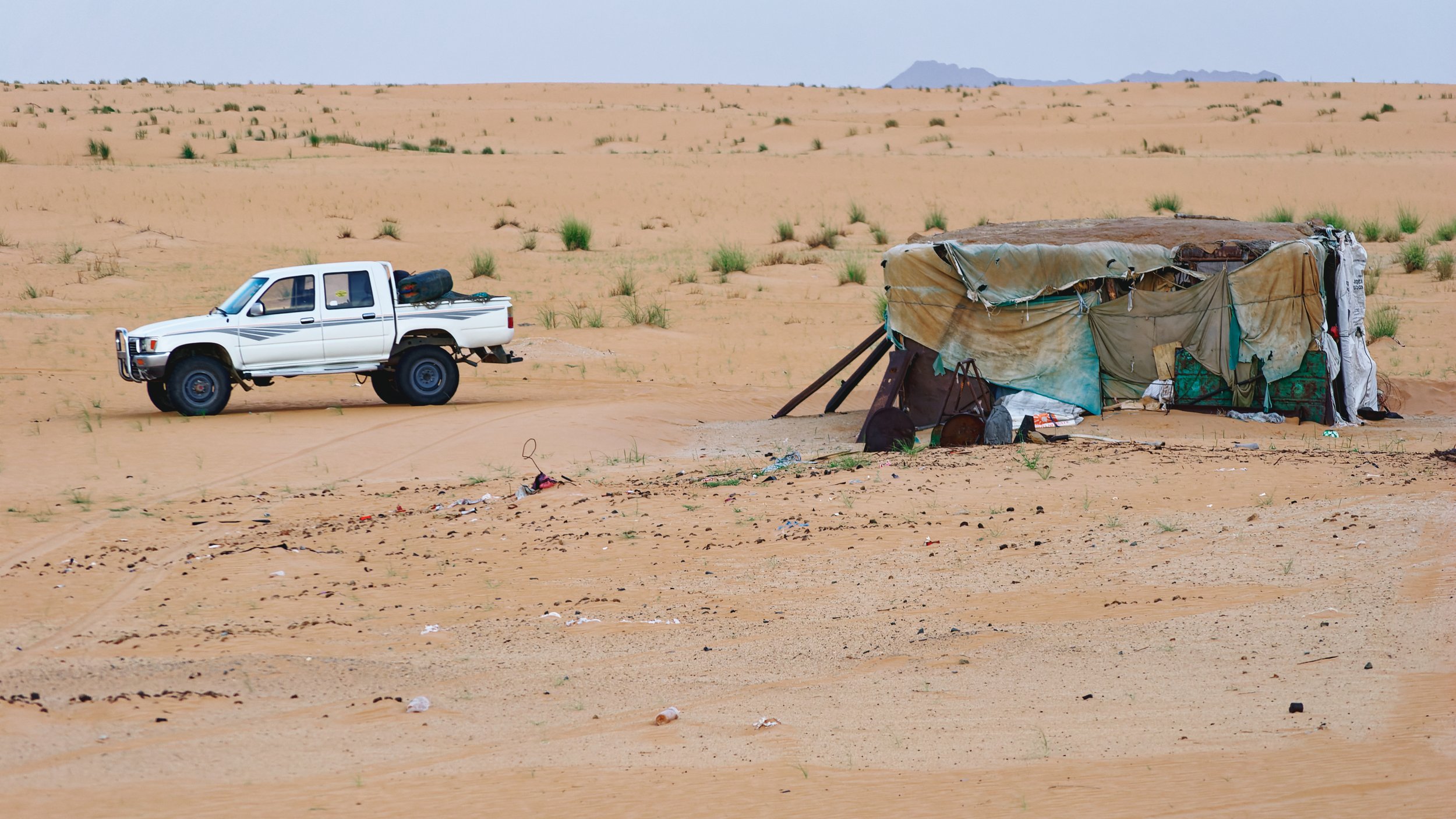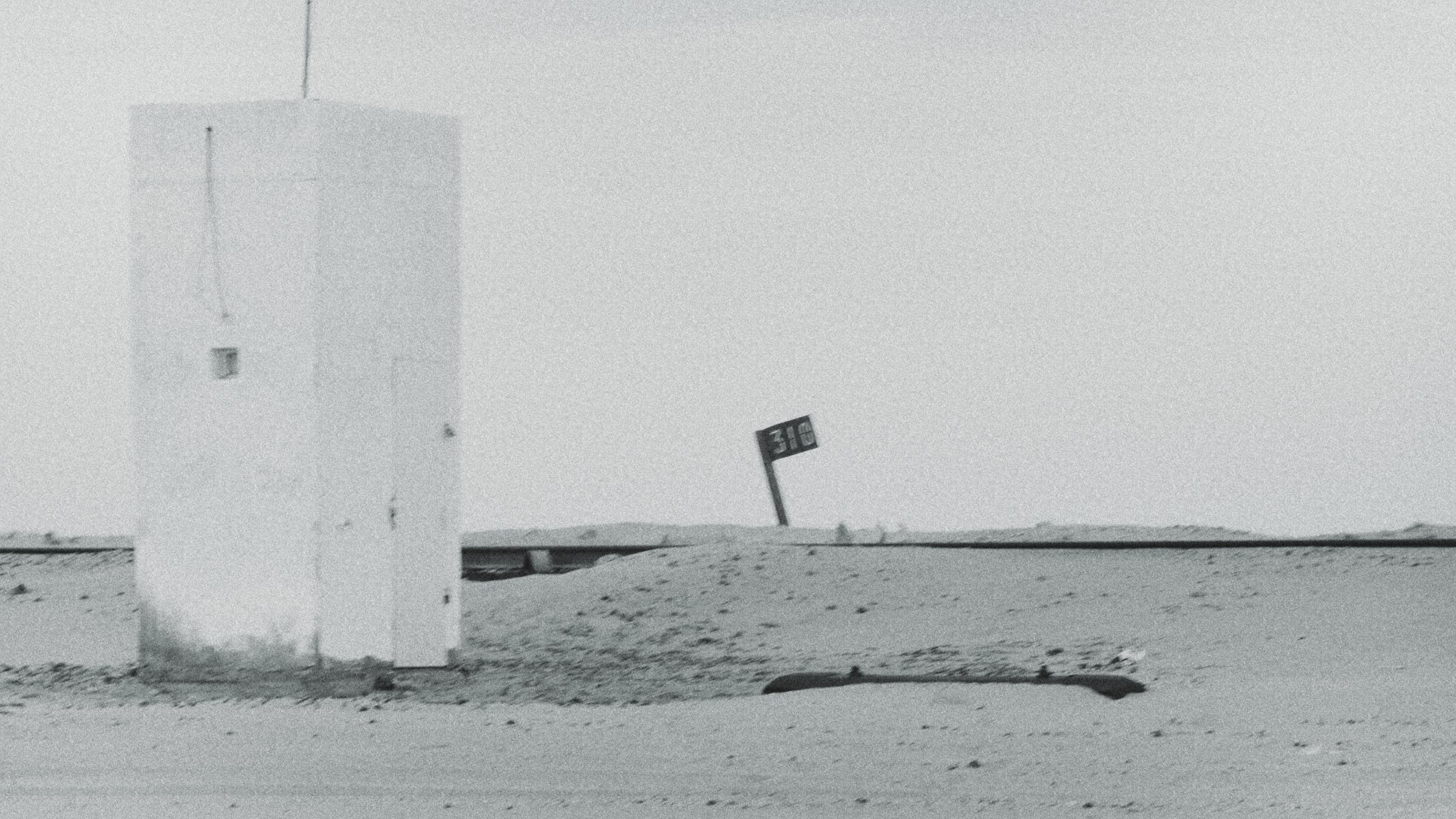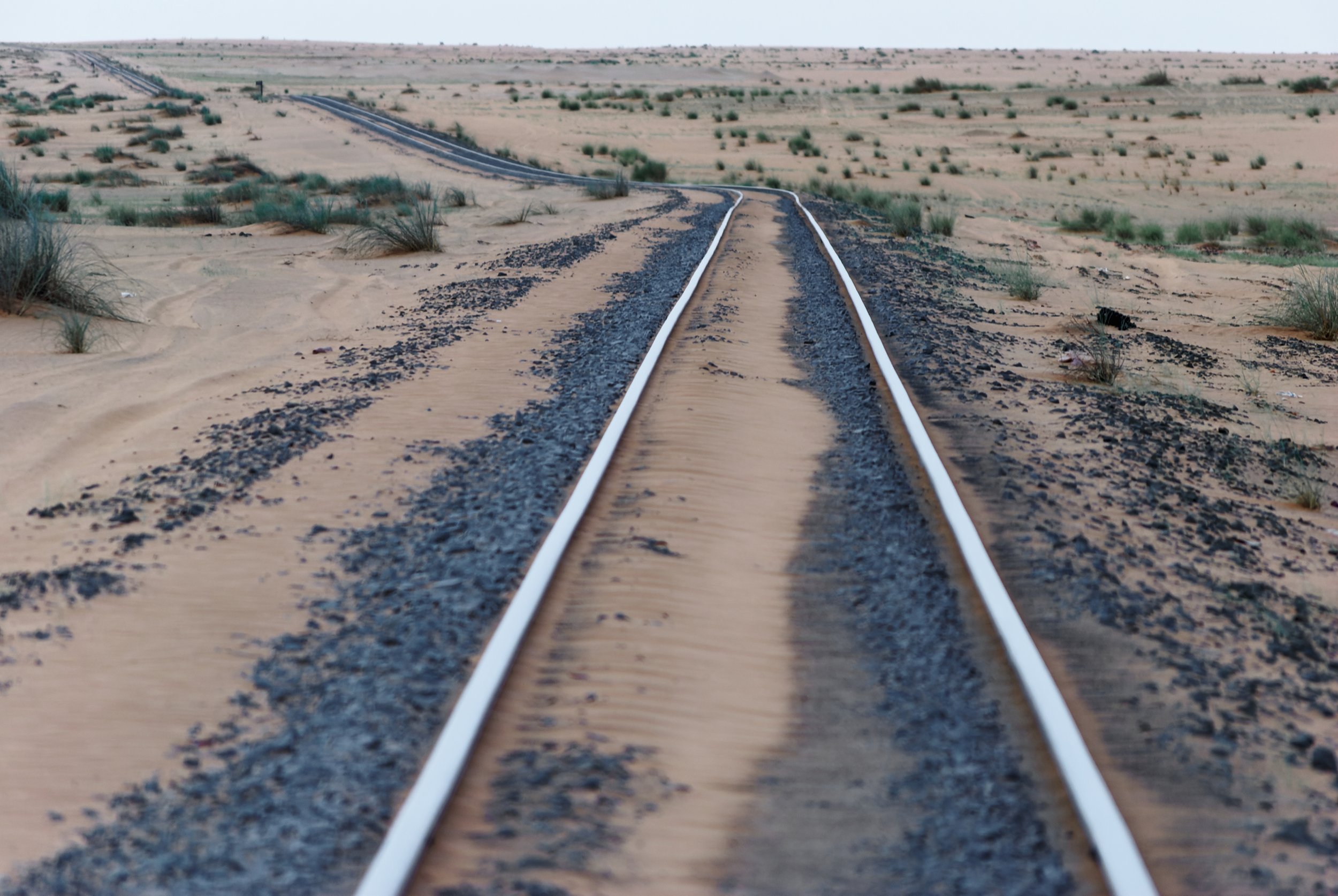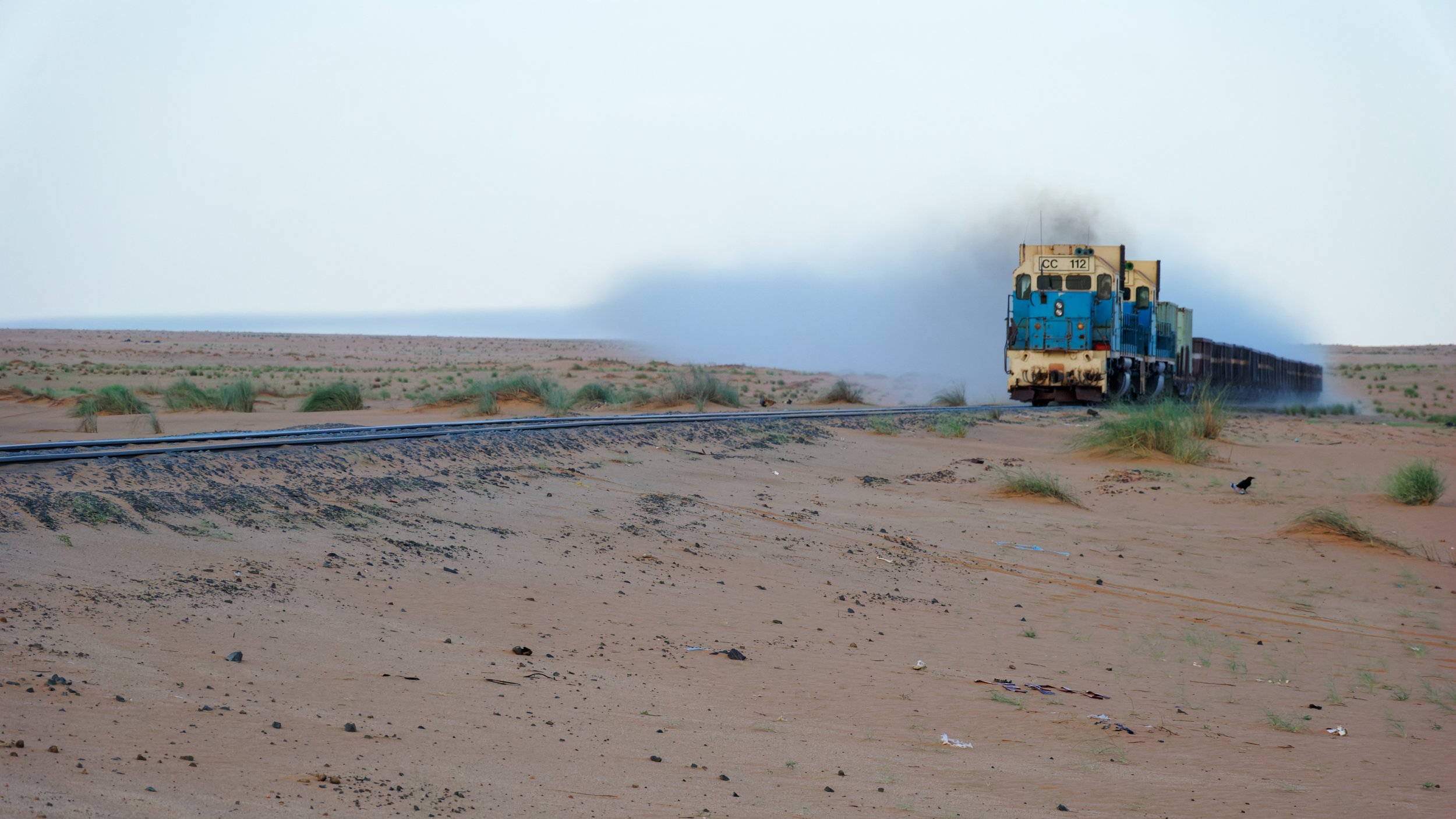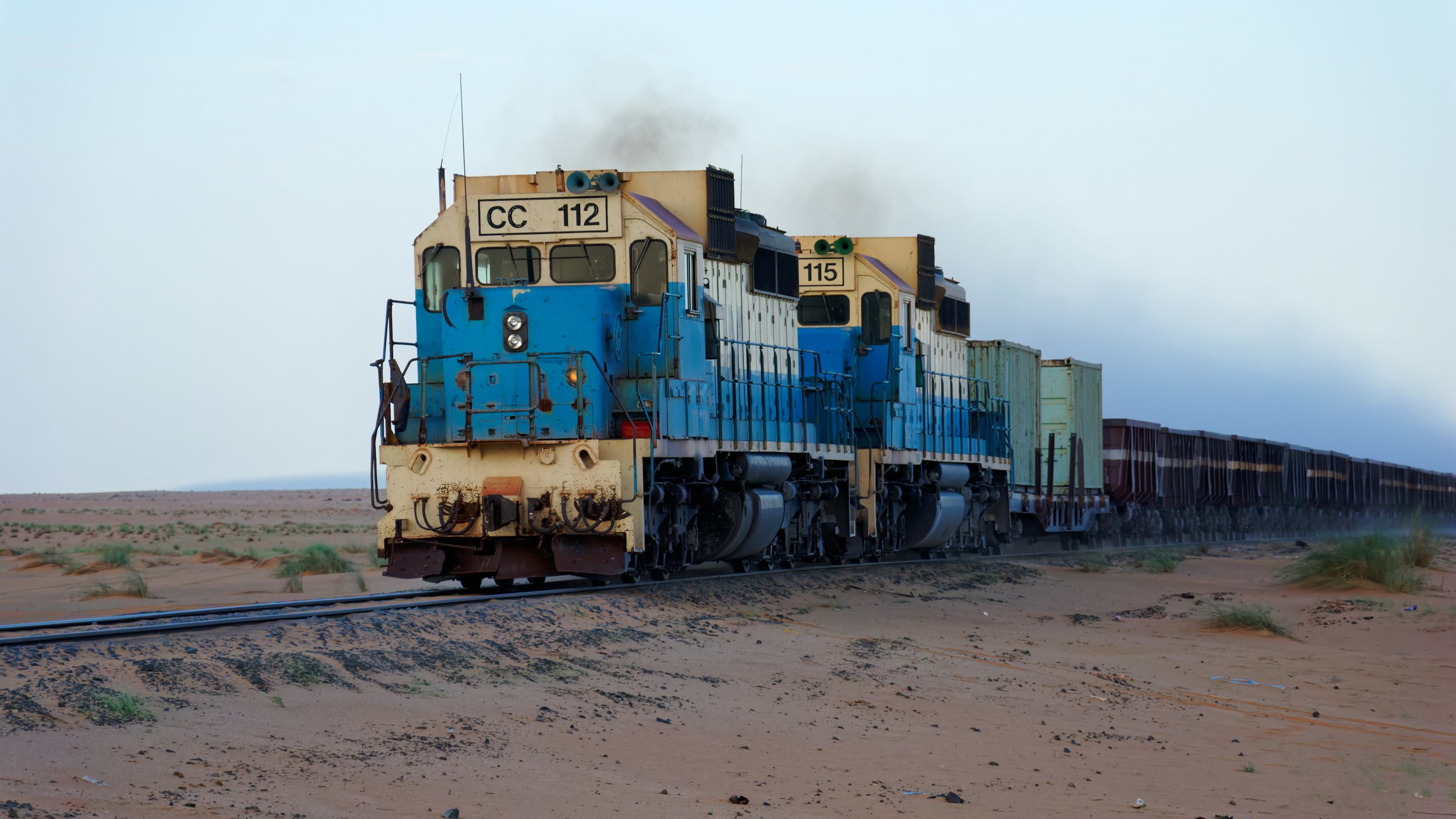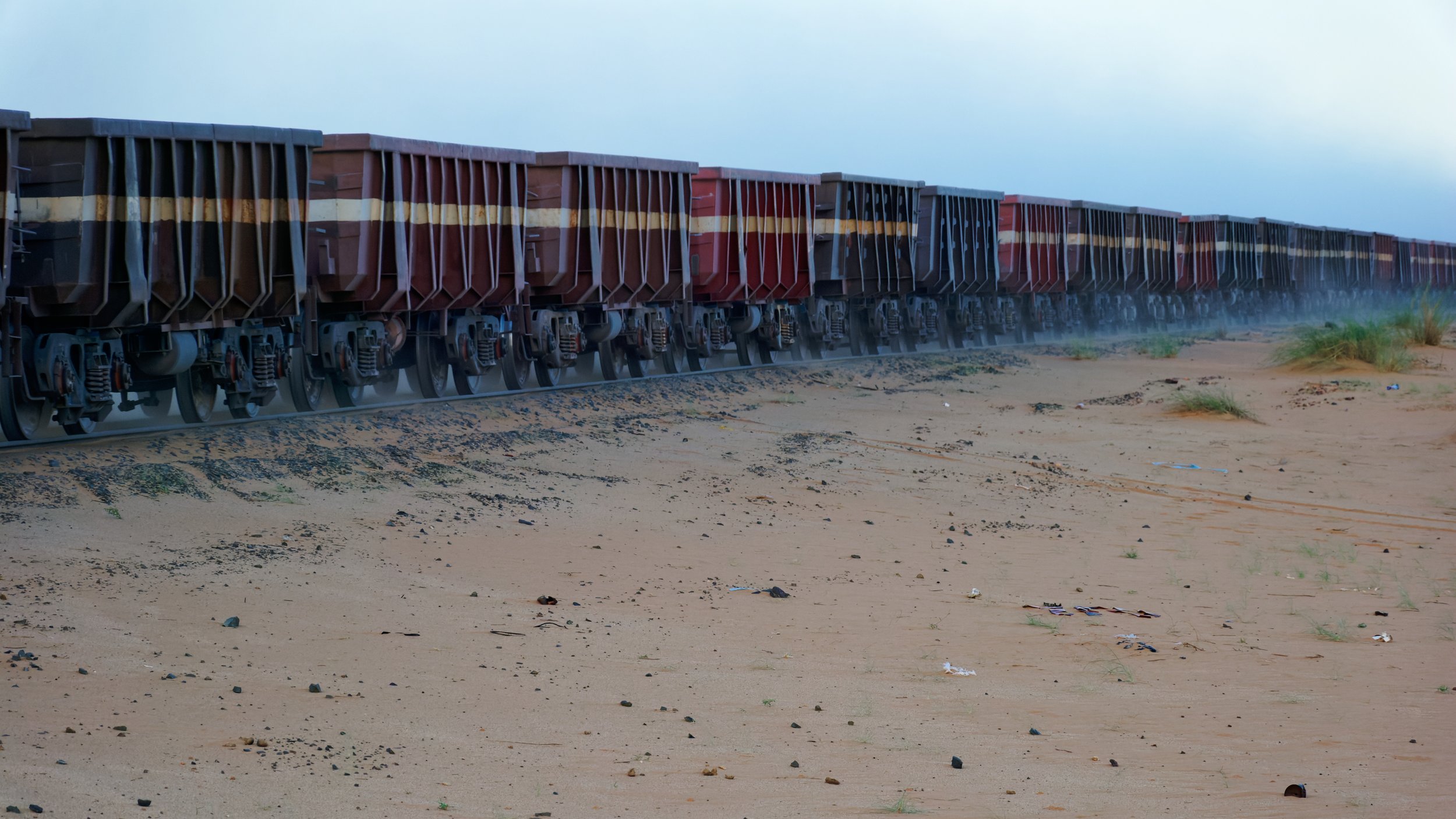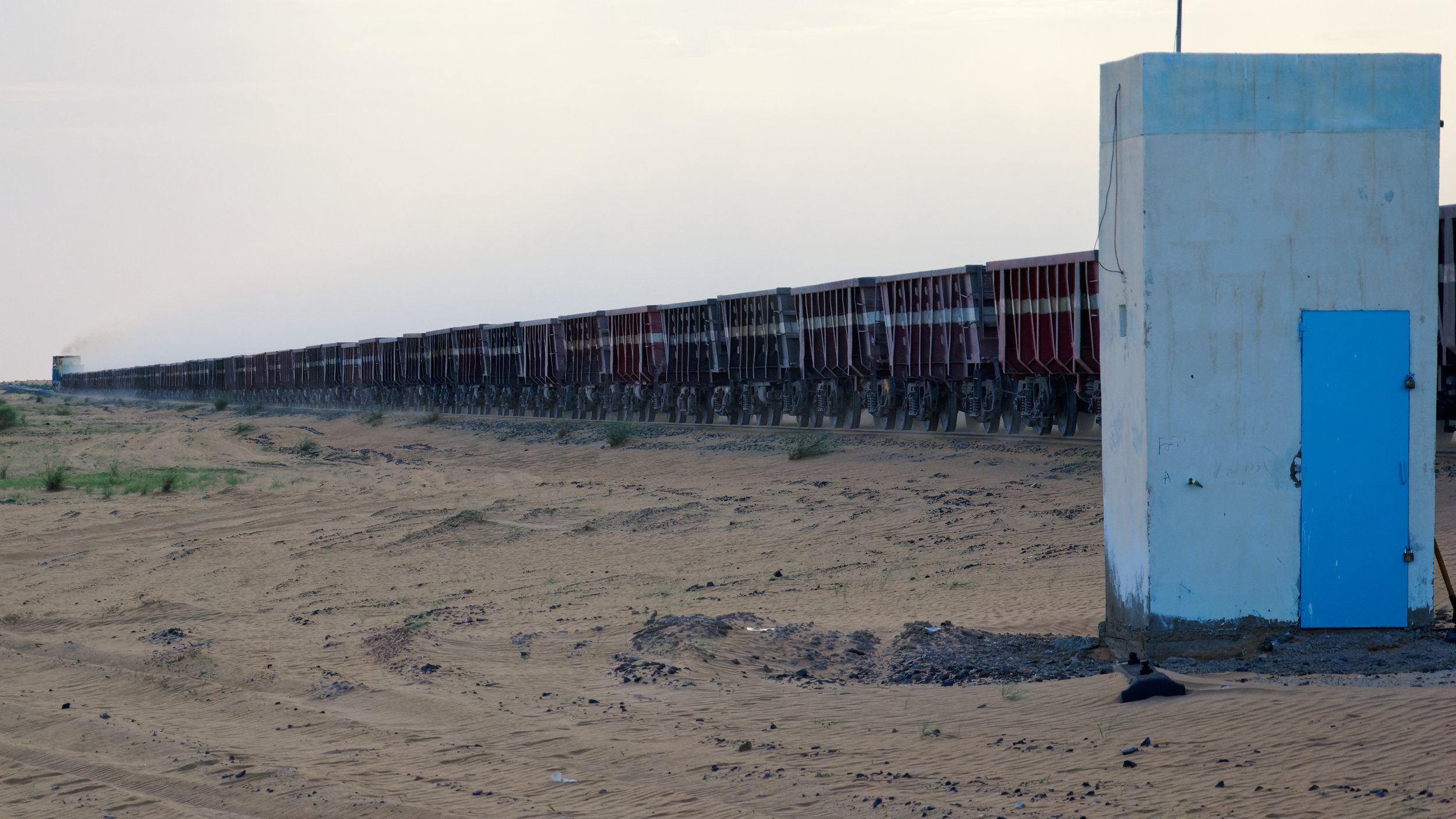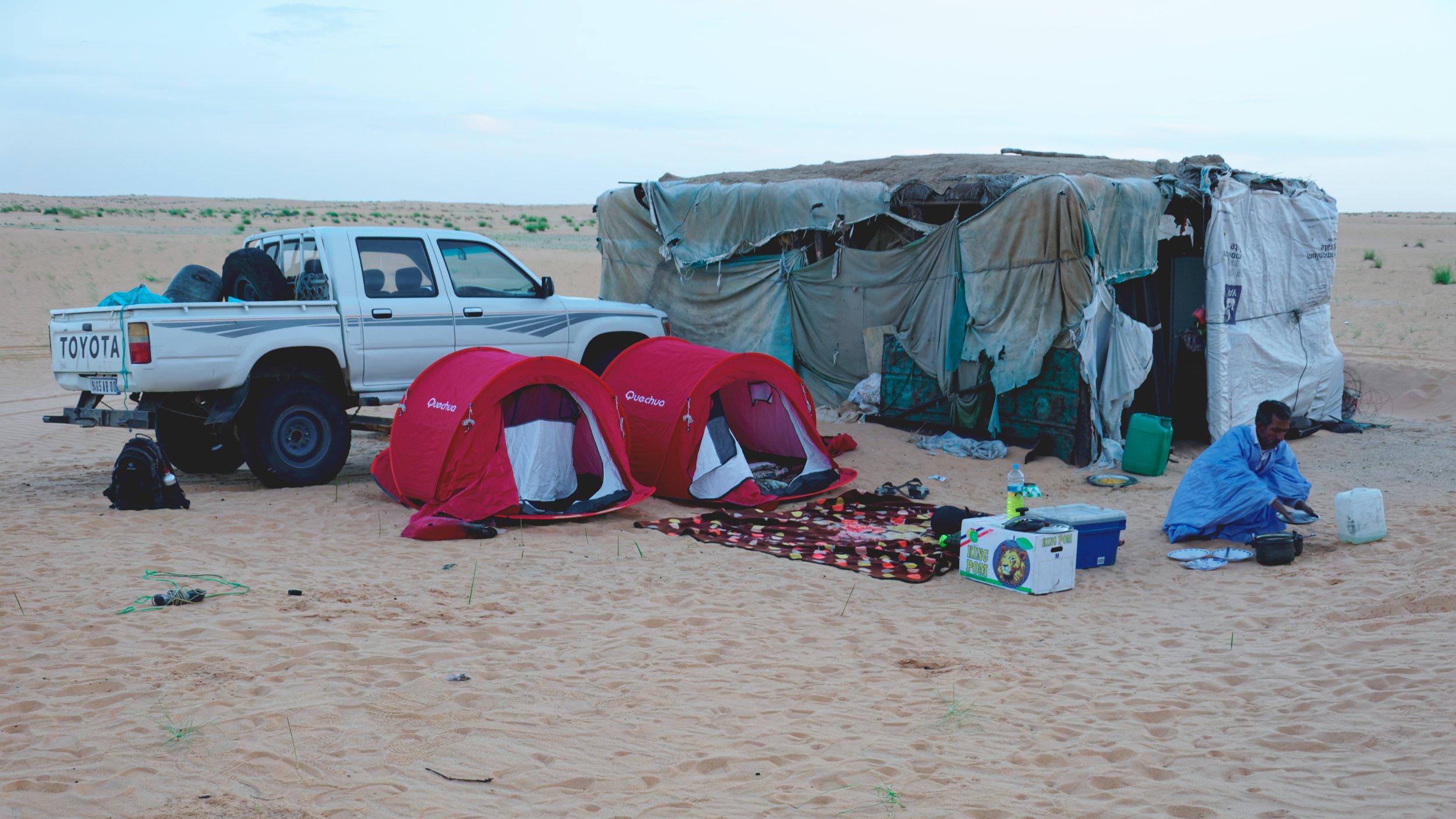183 - To the Hinterlands (Dakhlet Nouadhibou, Mauritania)
WE WERE OFF. INTO THE UNKNOWN. Into the desert. Into the chaotic abyss of Ahmed's mind. We covered 300 km on the first day; the majority spent driving straight through the sandbox. Paved roads are for pussies... or pussies without a chauffeur. If you like desert, then you'll love Mauritania. About three-quarters of the country is desert or semidesert. Only 0.2% of the land is arable (able to grow crops) and a mere 0.01% sustains permanent agriculture. It's Old Macdonald's worst fucking nightmare. Not a hell of a lot of people living there either, 4.6 million (40% of which live in urban areas). I will make repeated allusions to Mauritania's apocalyptic landscape. It will get old.
If “nowhere” is on your bucket list, northwest Mauritania is, at the very least, on the way—a land of enchanting desolation where the “nothingness” surrounding you still has a “somethingness” quality. This explains why I wasn’t the slightest bit bored sitting in a vehicle for hours staring into the void. Mesmerizing, captivating, and a whole slew of other adjectives can’t do it justice.
At one point, we pulled off the sand track for a short respite. Ahmed wanted a break. It was teatime. Tea, for Mauritanians, is only slightly less important than breathing and procreation. Watching locals pour tea back and forth from their miniature pot into minuscule shot glasses and then from glass to glass in a relentless quest for the perfect combination of tea strength, sweetness, and temperature, you start to appreciate tea preparation as an art form. It’s a serious business. Men judge and are judged by their tea-making prowess. Most striking from a Western bent is how little tea one drinks, about half a shot per serving, at which point the whole procedure begins anew. Tea is beside the point. This is a vital social ritual embedded deep within the culture.
Over tea shots, we learned more about our intrepid leader. Up till then, we’d heard loads about satisfied former American clients. Now, it was time for a peek-a-boo into Ahmed's brain. He owned the tour company but didn’t normally take people out himself. Instead, he had drivers do the grunt work. He seemed to take a special interest in us as Americans, reiterating multiple times how they’d been given quasi-elevated status according to a verbal mandate passed along by the Minister of Tourism. Americans getting preferential treatment? Be still my heart.
[Author's note: He didn't really take an interest in us, unless by “us” you mean Leslie. His intentions became crystal clear: Steal the white woman from the goofy bastard. Think I'm paranoid or fell victim to a cultural misunderstanding? Oh, how I wish it were so. Stayed tuned.]
Ahmed professed to be a bastion of tolerance, claiming to care nothing for one's country of origin or religious preference. Israelis? No problem. Mauritania's on-again, off-again relationship with Israel was a political affair meant to assuage hard-line sentiments in the Arab world. Its people have no deep-seated grudge against Israel. (Ummmm… not so sure about that.) Al-Qaeda? Not true Muslims. Men who hit women? Not good Muslims. Men with more than one wife? Not good Muslims. I guess Ahmed was more of a lover than a hater… unless you happen to be black, in which case he was an ardent racist. Black people from any part of Africa? No good. Black people in general? No good. Black folks from Senegal? Particularly no good. We found this especially curious given how a black “friend” (also a guide) spoke highly of Ahmed in his presence. I asked Ahmed about this and was given the “ehhhh, so-so” hand wobble, as if to say, “He's okaaaay... for a black dude.”
Ahmed's attitude wasn’t surprising. Racism is alive and well in Mauritania. Let's start with the Moors. What the hell are Moors? Exact definitions hinge on history and context. I believe the term “moor” refers to Arabs, Berbers, or Black Africans whose ancestors came from Northern Africa… probably. You have white Moors (i.e. lighter skinned individuals of Arab descent). You have Black Moors. You have Mixed Moors. And then you have descendants of slaves, ex-slaves, and actual slaves who may or may not be moors... I think. The social stratification goes White Moor, Black/Mixed Moors, slave descendants, ex-slaves, slaves… I think.
No, that’s not a misprint. Forget racism. Think slavery. Government declaration abolished it in 1981, making Mauritania the last country to do so. Seriously. The move was cosmetic, i.e. abolished, but not criminalized. Um, what? Finally, in 2007, a law made slave ownership a punishable offense. And yet, it persists. Some estimate 10 to 20% of the population (4.6 million) lives in servitude. Um, what? How do you define slavery? Here's a generally accepted definition:
“Modern slavery is the illegal exploitation of people for commercial or personal gain, covering a wide range of abuse and exploitation, including forced labor, sexual exploitation, domestic servitude, criminal exploitation, and organ harvesting. It occurs in almost every country in the world and cuts across ethnic, cultural, and religious lines.”
Hot, free and dangerous: A train ride in Mauritania
February 12, 2016 at 10:46 a.m. EST
In Mauritania, only one train to ride exists: It is nicknamed the Iron Train. It stops once for five minutes in Choum on its daily 437-mile journey from Zouerat in central Mauritania to Nouadhibou on the coast. Its main purpose is to transport iron ore, 22,000 tons mined in Zouerat daily and poured into 220 iron hoppers linked together to make a 1.5-mile-long train…Read More
The unspeakable truth about slavery in Mauritania
Fri 8 Jun 2018 07.00 BST
In 1981, Mauritania made slavery illegal, the last country in the world to do so. Nonetheless, tens of thousands of people – mostly from the minority Haratine or Afro-Mauritanian groups – still live as bonded labourers, domestic servants or child brides. Local rights groups estimate that up to 20% of the population is enslaved, with one in two Haratines forced to work on farms or in homes with no possibility of freedom, education or pay…Read More
Courtesy of Eva Zu Beck
Courtesy of Timelab Pro
I shudder to think how many folks I encountered fell into that category. Our waiter at the restaurant? The young boy employed at the auberge? The guy at the petrol station? All of them? None of them? Did my presence there make it better or worse for them? Am I complacent? Complicit? And for those quick to jump on their high horse, I refer you to "occurs in almost every country.” There are significant numbers of migrant workers who fit that definition living in the United States. The fucking United States. And that’s saying nothing of sex workers. Um, what… the fuck?
Teatime was over. We drove on. More mesmerizing landscapes. More insight into Ahmed world. He spoke of the tendency for Western men of questionable moral character to come to Mauritania in search of younger women. The technical term is “scumbag.” He also described a similar circumstance with an older woman (cougars?) in search of Mauritanian meat. He himself had to ward off the cat-like advances of a certain 58-year-old Dutch female who tried to beguile him with the prospect of a charmed life. He wasn't biting. As he put it, “I have my own money.” You go, girl!
Ahmed had a half-Israeli Ukrainian wife (separated at the time) who he met during his ten-year stint as a boat captain. (A man from Mauritania and a half-Israeli/half-Ukrainian wife? Um, what?) He also had a ten-year-old son who he rarely saw. Although the acrimony toward his estranged wife was palpable, he hoped to remarry someday. (Hi, Leslie, how you doin’?) Keep in mind, this conversation unfolded in our unique pigeon language, composed of English, Spanish, and a smidgen of French. (Franglish?) No one fluent in any of the three would’ve had any idea what the hell we were talking about. I'm not sure we had any idea what the hell we were talking about.
At day’s end, we camped alongside the train tracks near a shack manned by a man tasked with monitoring that section of the line. Ahmed was none too keen on sleeping in the small village nearby (Tmeimichat). Preferring the solitude and the company of a friend, he opted for the out-of-the-way location. (Also, an ideal place to murder me and make off with Leslie.) No arguments from us. We preferred it. Ignorance is bliss. Oh, what a tangled web we weave...
As Ahmed knew the gentleman and felt it was secure enough for the evening, we settled in and relaxed. We drank tea. Drank some more tea. Ate dinner. Drank tea. Then we had tea. Being so close to the tracks gave us a close-up of the ore train as it passed. The backdrop, combined with a steel caterpillar inching its way across the landscape, its tail end ensconced within a cloud of dust, felt just about right. I had to keep reminding myself where I was... Mauritania, asshole.
There's hidden humor here. Ahmed didn't sleep in a tent. They were for us. Notice how there are two. Wishful thinking on his part. He set up both hoping we weren’t sleeping in the same tent. Wish in one hand, shit in the other.

